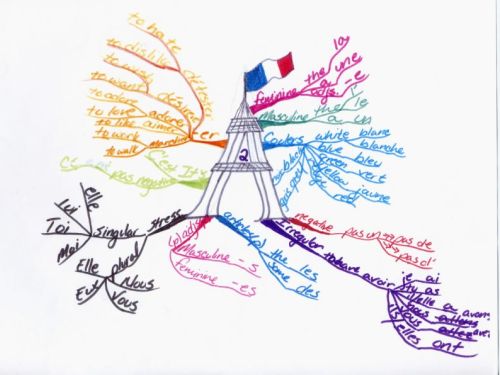Don’t freeze in French: go with the flow

It’s a natural response. The brain hears sounds which it then has to transform to get the message. So when it misses a bit, it ‘rewinds’, trying to recall what has just been said, then tries to catch up.
Now, most language students do something else. They add two phases. Instead of just hearing and understanding, they hear, transform into words, translate, and then understand. Some of them even visualize a written sentence before translating it.
This requires a huge effort. The brain cannot go through all of this AND hear and process the rest of the sentence.
So what can you do about it?
First, try to link the French words to images or feelings instead of to the English words. Most of the time, you do not need to translate – it certainly works for basic concepts. For example, ‘un chien‘: see the dog in your head instead of thinking ‘a dog’. ‘J’ai faim‘: bring up the sensation of hunger instead of linking it to ‘I am hungry’… and you’ll avoid the mistake of saying ‘je suis faim‘…
Then, stay focused on the context. Not only words can convey a message: looks, intonation, the rest of the sentence… When someone asked “Tu veux du thé?” (would you like some tea?), if you can see what is happening, you don’t need to actually hear the question.
If you don’t understand something, well, let it go… focus on staying in touch with the flow of the conversation. Chances are that the rest of the sentence will give you enough information to fill in the blank. And if it doesn’t, you can always say “Je n’ai pas bien compris” (I didn’t get it all) – if you say only “je ne comprends pas“, people will think you don’t understand anything and are likely to switch to English.







Great advice Camille! I spent some time teaching English using the Callan method which follows similar principles in that students are encouraged to bypass the transform/ translate stage.